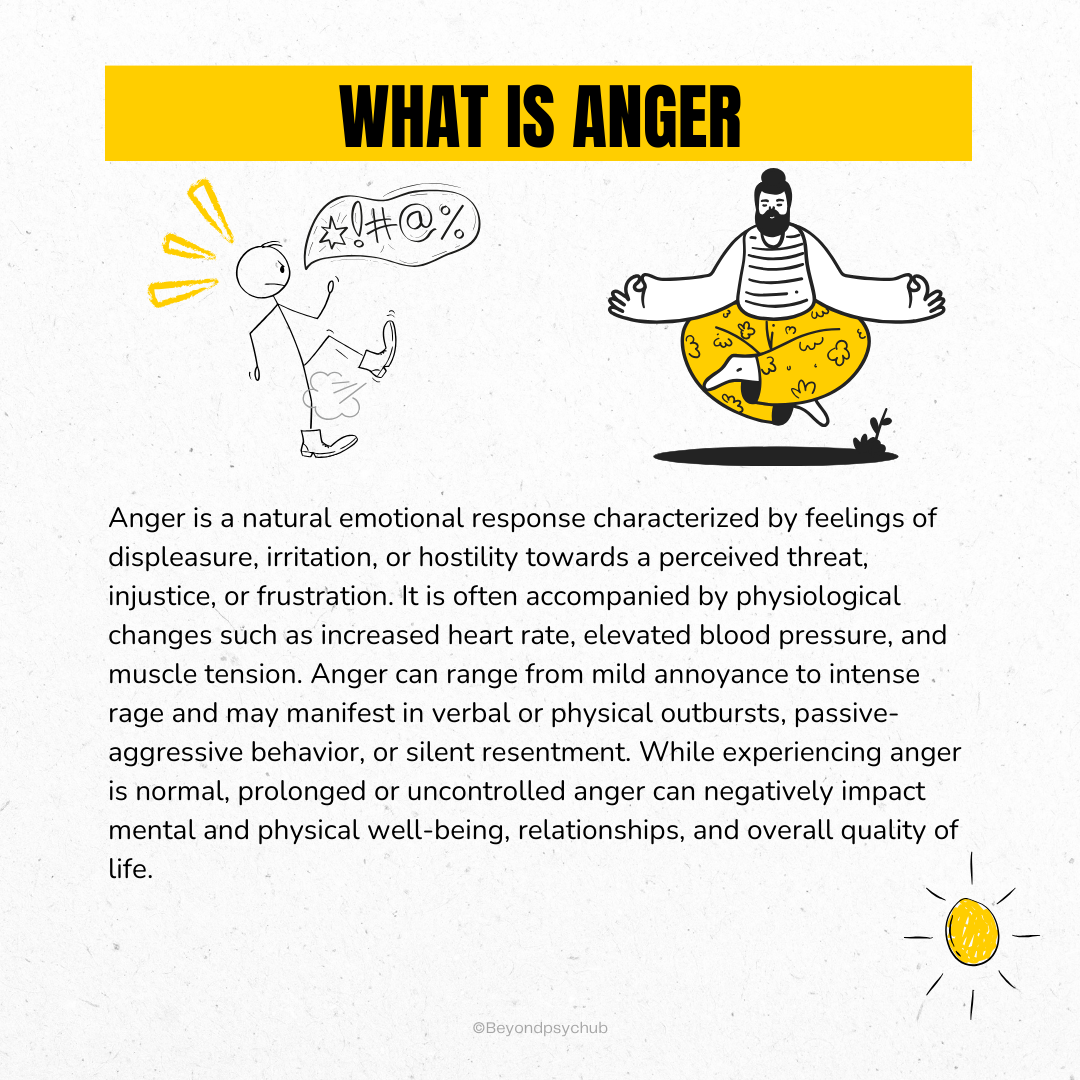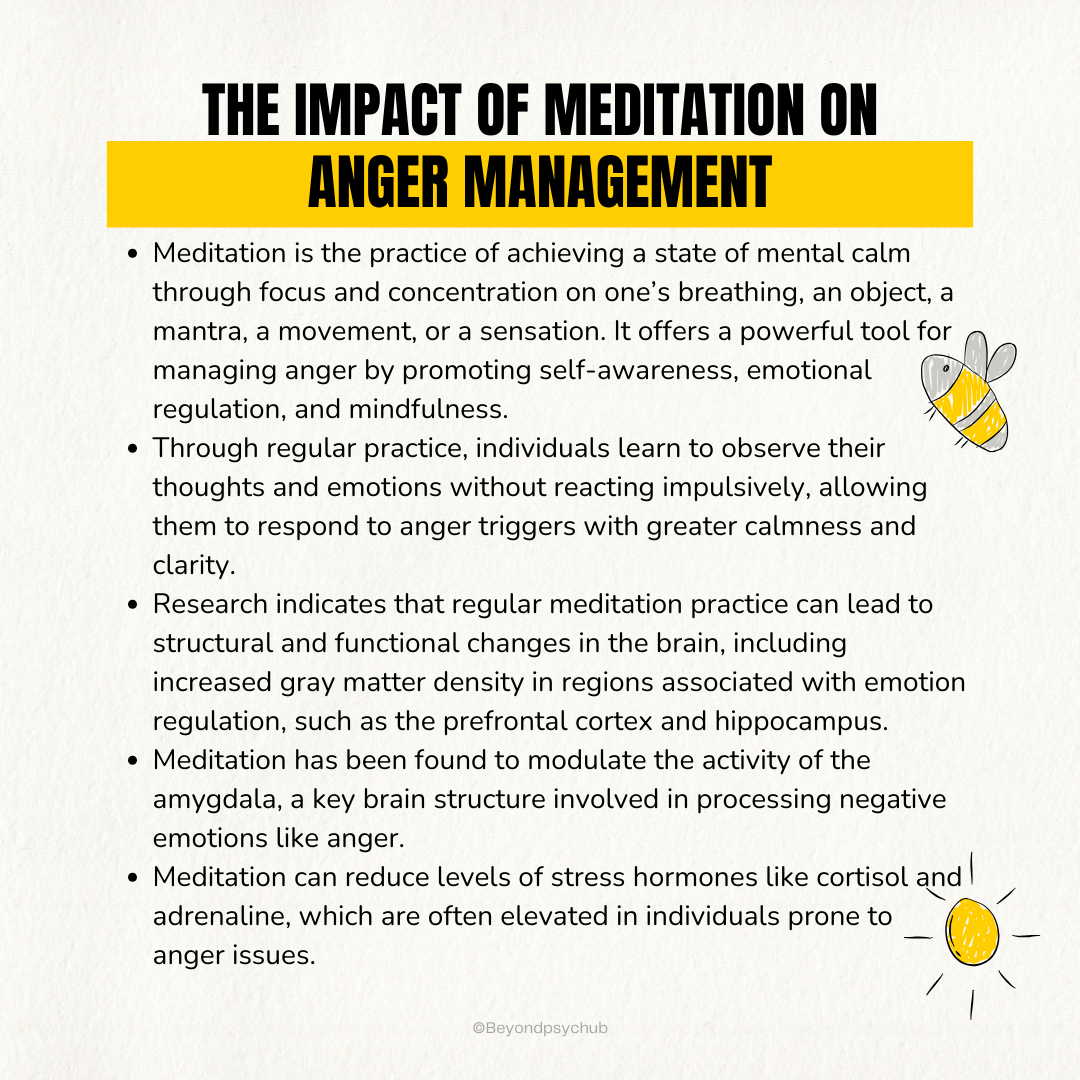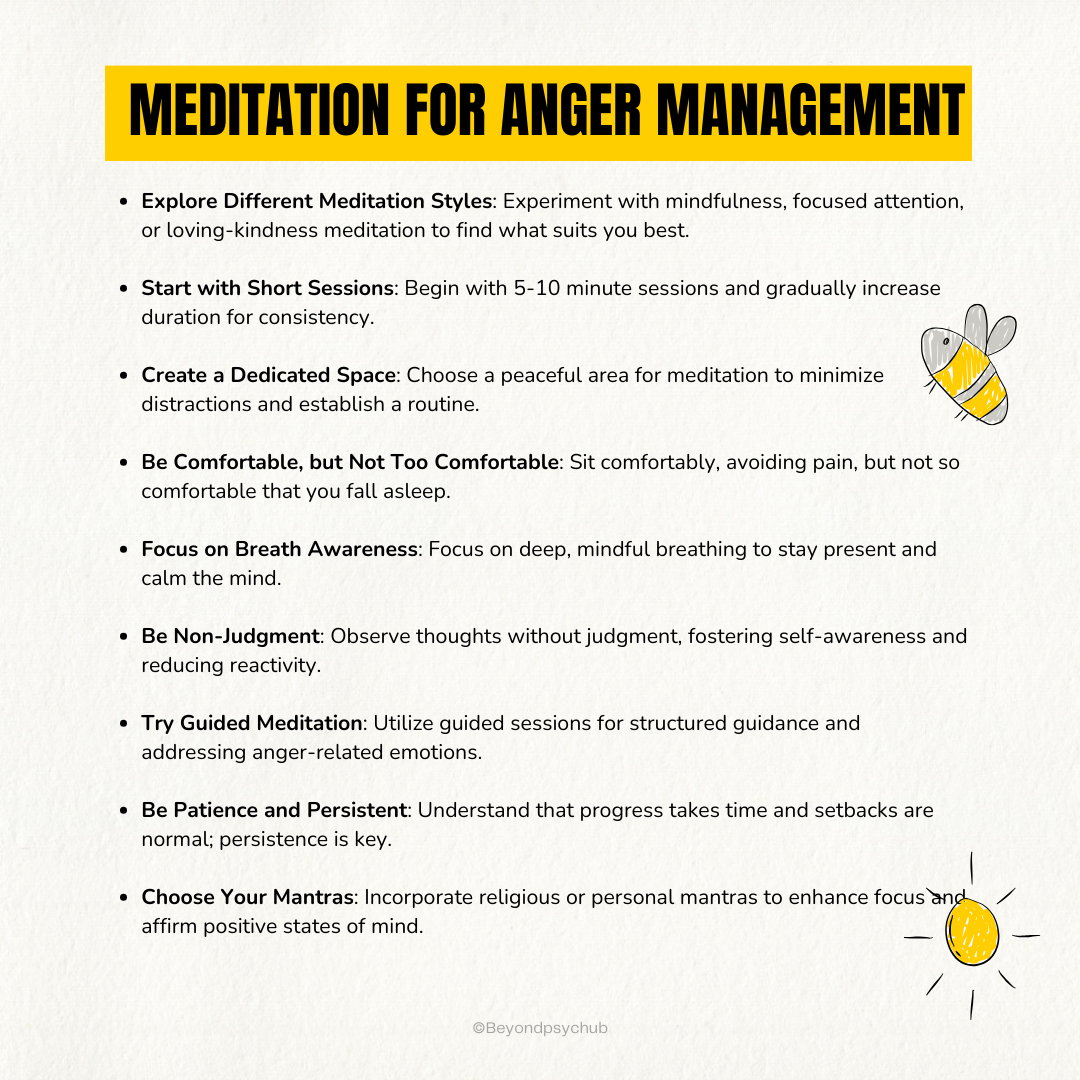Anger is a natural human emotion, but sometimes anger can get out of hand. If not managed, it can impact your physical and mental well-being, even hurting others as well. Among the various techniques of anger management, meditation has emerged as a fruitful and effective strategy, offering a holistic and natural approach to neutralizing this intense emotion. Meditation disrupts any overwhelming response to stress; it helps calm you down, making you emotionally stable. Regularly practicing meditation for anger management routine will release pent-up frustration, reduce stress, and provide you with a positive outlet for anger.
How Meditation Works
Meditation operates on the premise of the mind-body connection. It is the practice of achieving a state of mental calm through focus and concentration on one’s breathing, an object, a mantra, a movement, or a sensation. In essence, meditation is an intense form of mindfulness that stabilizes and balances the sympathetic nervous system by activating the parasympathetic nervous system (PNS). This heightened sense of awareness and inner calm enable individuals to recognize the triggers of anger, enabling a more measured and intentional response.
Stress in our daily lives can control our emotions and thoughts, often causing us to think negatively. In a state of stress, there is always the risk of acting or responding with anger. Meditation builds focus, induces calm and reduces the erratic thoughts and feelings that influence us to act impulsively.
The Impact of Meditation on Anger Management
From a physiological perspective, emotions are nothing but several chemical reactions being processed at lightning speed in the brain. During a stressful or negative situation, the sympathetic nervous system is activated to react, triggering the body’s flight or fight response. Negative emotions, including anger, are registered in the amygdala and then filter down, setting off a chain reaction involving the hypothalamus, pituitary gland, and adrenal glands. The entire stress mechanism produces and circulates hormones and neurotransmitters like noradrenaline, adrenaline, and cortisol, priming us to react to things that make us angry.
Anger releases an excess of cortisol, resulting in the death of brain neurons due to excessive calcium absorption. This calcium overload affects mostly the hippocampus and prefrontal cortex, areas of the brain associated with rational thinking, emotional regulation, and executive control. This is why anger makes it hard for us to see reason and impairs our judgment, leading to impulsive actions and decisions. Moreover, Chronic anger can lead to elevated cortisol levels, contributing to various health issues.
Meditation Directly Impacts Cortisol Regulation
Studies have shown that regular meditation induces structural changes in the brain, particularly in areas associated with emotional regulation. The prefrontal cortex, responsible for executive functions such as impulse control, undergoes positive alterations through meditation, providing individuals with enhanced emotional self-regulation capabilities. Meditation has been proven to lower cortisol production, promote a more balanced physiological state, and reduce the likelihood of anger-related health complications.
Tips for Getting Started with Meditation for Anger Management
Meditating might not be easy at first because you might find yourself mentally distracted. The trick is not to fight your thoughts but to just be mindful of the moment, accepting everything that flows through you without judgment. Practice makes perfect, and adopting the guidelines below will ensure your meditation efforts bear fruit.
Choose the Right Type of Meditation
There are various meditation techniques, each catering to different preferences and needs. Mindfulness meditation, focused attention meditation, and loving-kindness meditation are just a few examples. Experiment with different styles to find the one that resonates most with you and aligns with your goals for anger management.
Start with Short Sessions
For beginners, start your practice with shorter sessions that can be managed and sustained easily. Begin with just 5–10 minutes per day and gradually increase the duration as you become more comfortable with the practice. Consistency is key to reaping the benefits of meditation for anger.
Create a Dedicated Space
Designate a quiet and comfortable space for your meditation sessions. This can be a corner of a room, a cushioned area, or any place where you can sit or lie down without distractions. Having a dedicated space fosters a sense of routine and focus during your meditation practice.
Be Comfortable, but Not Too Comfortable
A meditative pose doesn’t have to be the stereotypical cross-legged lotus position. You could even sit on a chair and meditate. Adopt a position that does not cause you pain; however, avoid lying down and meditating because, when you get too comfortable, you might just drift off to sleep. If that happens while meditating, try shifting your position or choosing a different time of day to ensure you stay awake.
Focus on Breath Awareness
Breath awareness is a fundamental aspect of many meditation techniques. Concentrating on your breath helps anchor your attention to the present moment, preventing the mind from wandering into anger-triggering thoughts. Deep, mindful breathing can induce a state of calm and centering.
Be Non-Judgmental
In meditation, the goal is not to suppress or eliminate thoughts and emotions but to observe them non-judgmentally. As anger arises during meditation, acknowledge it without attaching value judgments. This practice fosters self-awareness and reduces the reactive nature of anger.
Incorporate Guided Meditations
Guided meditations, led by experienced instructors or through pre-recorded sessions, can be immensely beneficial for beginners. These provide structured guidance, helping individuals navigate through the meditation process and offering specific instructions for addressing anger-related emotions.
Be Patient and Persistent
Like any skill, mastering meditation takes time and persistence. Understand that progress may be gradual, and setbacks are a natural part of the journey. Patience is crucial in allowing the transformative effects of meditation to unfold over time.
Choose Your Mantra
If you are a religious person, it would benefit your mediation efforts to chanting a mantra. You could either choose one from your respective religion or even create one that resonates with your philosophy and mental sustenance. For those who aren’t into any religion, you could use a re-affirmation mantra such as, “I am calm” or “I am in control.” Repeat this while meditating.
Meditation in anger management stands out as a powerful holistic approach rooted in the mind-body connection. It has been proven that mediation is supported by neurological and physiological changes, offering individuals a profound tool for cultivating emotional balance. By choosing the right type of meditation, starting with short sessions, and incorporating mindful practices, individuals can embark on a transformative journey towards successful anger management and fostering overall well-being.



















